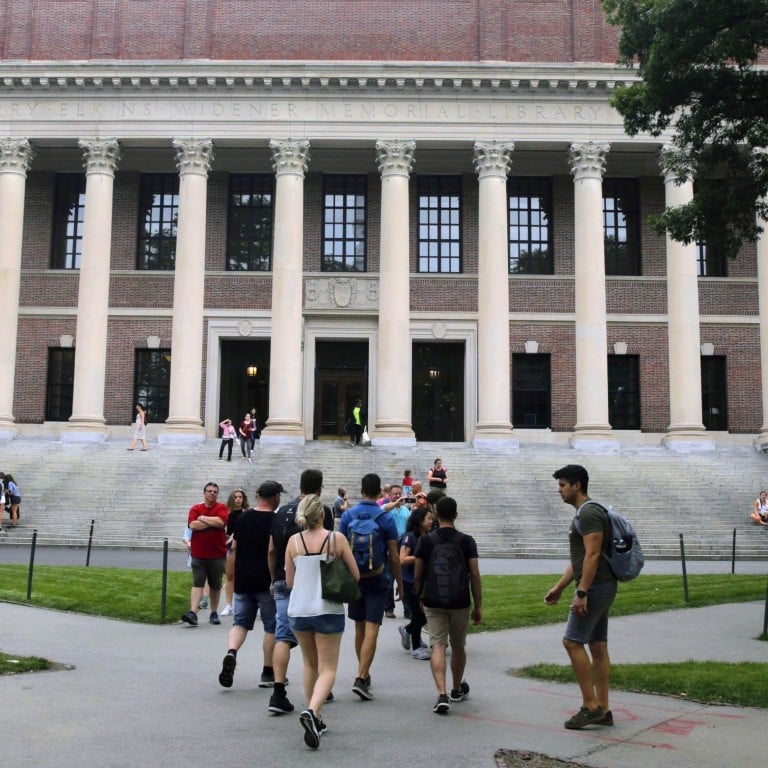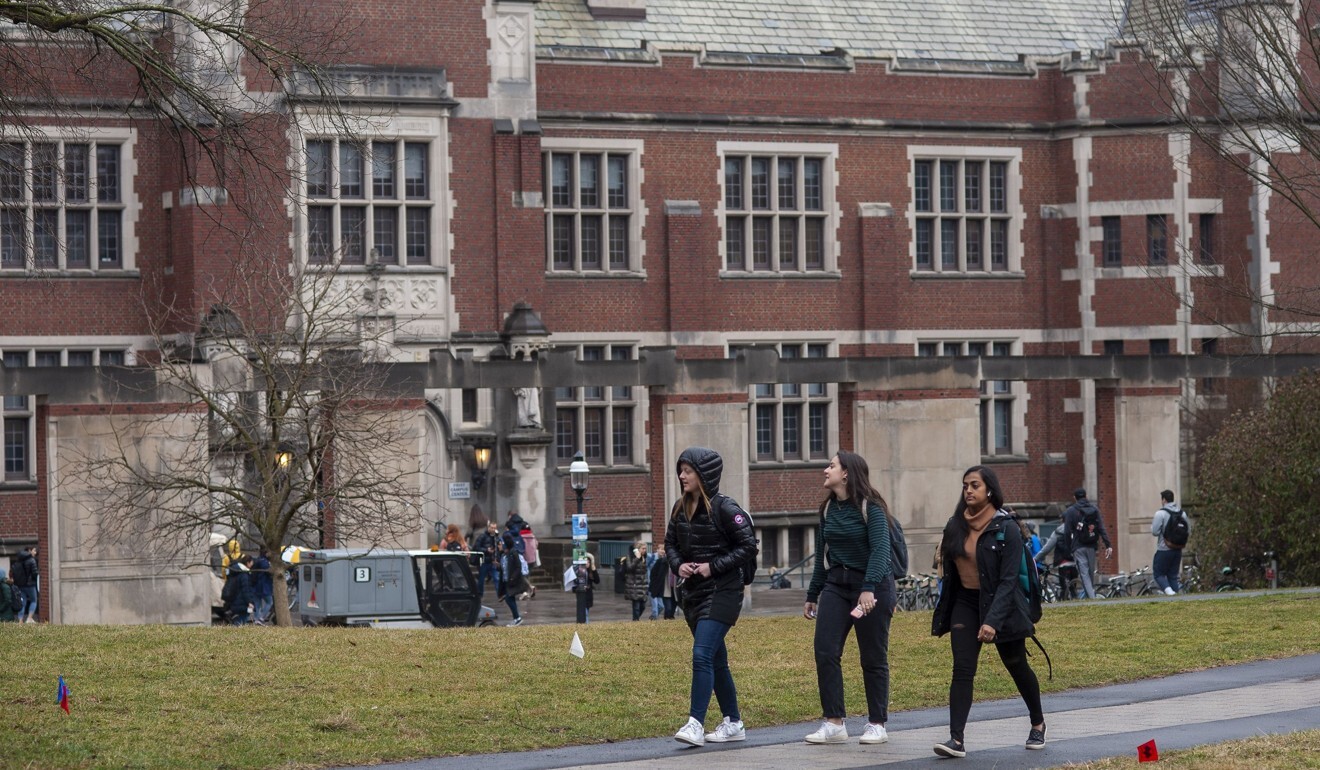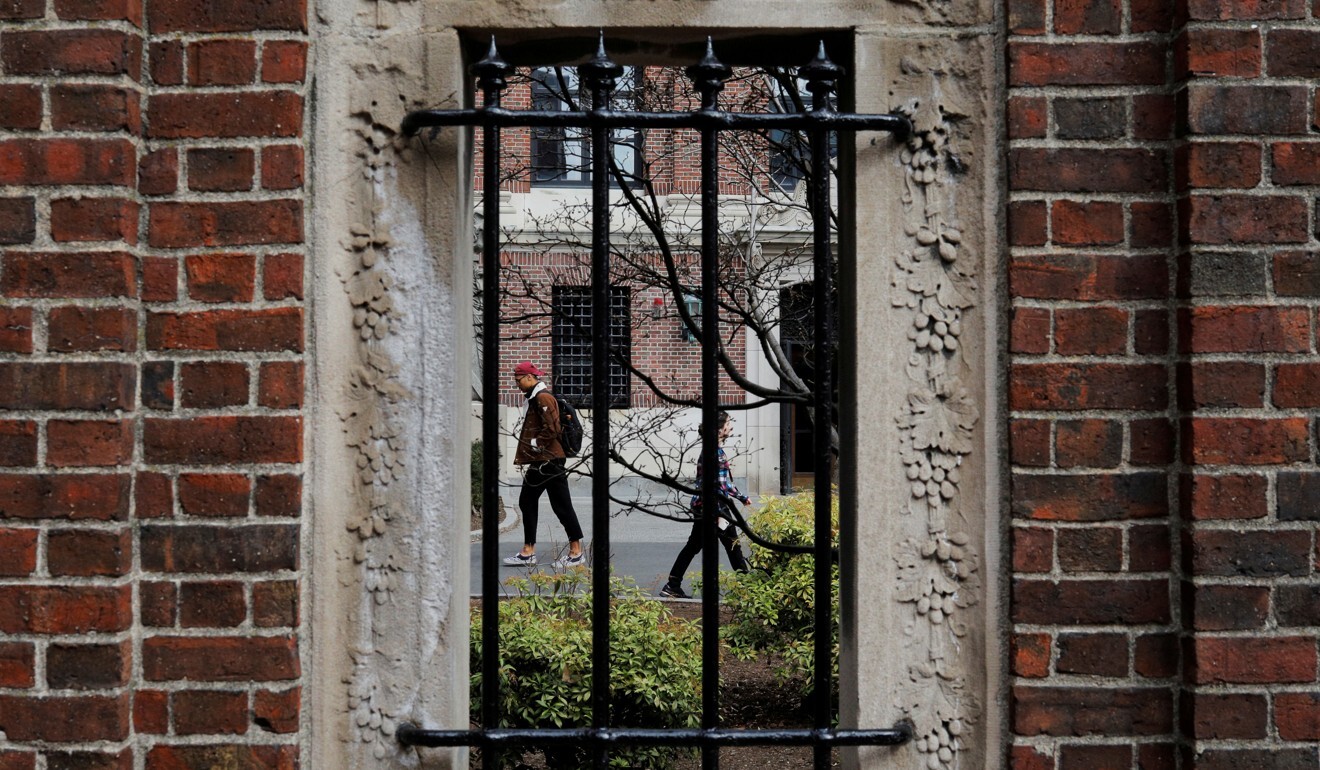
US to bar foreign students whose university classes will be online only
- If people with student visas want to stay, they will need to transfer to a school with in-person instruction, Immigration and Customs Enforcement says
- Harvard is inviting back 40 per cent of students, who will live in single rooms and be tested for Covid-19 every three days
Foreign students will be blocked from entering the US or asked to leave the country if their schools are conducting online-only classes because of the Covid-19 pandemic, the Trump administration announced on Monday. The move takes effect just as Harvard and other US universities announced online-only plans for many students.
“Non-immigrant F-1 and M-1 students attending schools operating entirely online may not take a full online course load and remain in the United States,” the US Department of Homeland Security’s Immigration and Customs Enforcement division said.
“The US Department of State will not issue visas to students enrolled in schools and/or programmes that are fully online for the fall semester nor will US Customs and Border Protection permit these students to enter the United States,” it said. “Active students currently in the United States enrolled in such programmes must depart the country or take other measures, such as transferring to a school with in-person instruction to remain in lawful status.”

Although some students at Harvard will be invited to live on campus in the upcoming academic year, including all first-year students during the first semester, “all course instruction (undergraduate and graduate) for the 2020-21 academic year will be delivered online,” the school said in an announcement. “Students will learn remotely, whether or not they live on campus.”
Throughout the academic year, only 40 per cent of the undergraduate student body will be allowed to live on campus, and the priority will shift to graduating students in the second semester, according to Harvard’s plan.
At Princeton University, about half of the school’s undergraduates will be allowed to live on campus starting in August, including first- and third-year students, while the other half can return the follow semester, the school announced, adding that “most academic instruction will remain online”.
US students throw ‘coronavirus parties’, with prizes for getting infected
Princeton is offering a 10 per cent tuition discount for all students for the 2020-21 academic year, whether they are on campus or taking classes online.
The US government’s move will likely hit mainland Chinese students hardest; at nearly 370,000, they account for the largest number of international students in the US.
Harvard acknowledged the difficulty its move may create for foreign students planning to travel to the US for the upcoming school terms.
“Guidance for international students continues to evolve at a rapid pace,” the school said. “One of the reasons that we determined early in our process that we would rely upon remote instruction was that we expect many international students will encounter challenges entering the country given that consular offices are not processing F-1 visas.”

The decision to keep many classes online comes as rates of coronavirus infection are rising in at least 32 US states.
“I would say this would not be considered a wave,” Anthony Fauci, the nation’s top infectious disease expert, warned on Monday, dismissing talk that rising cases represented a “second wave”. “It was a surge, or a resurgence of infections superimposed upon a baseline that really never got down to where we wanted to go.”
Arizona surpassed 100,000 cases on Monday as its tally has doubled within the past two and a half weeks to 101,505, The New York Times reported. On Sunday, Texas and Florida both surpassed 200,000 total cases, The Times said.

